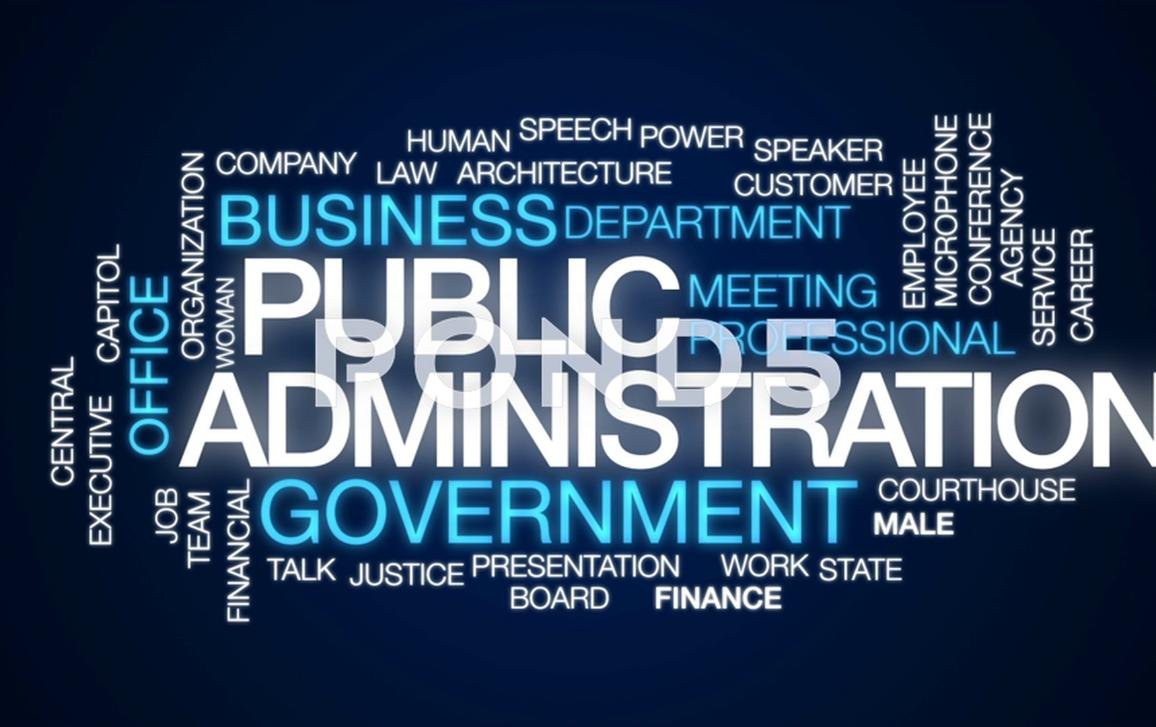Applying for a master’s program can feel daunting, especially when universities emphasize the importance of strong references. Admissions committees often use these letters to judge whether you’re more than just good grades on paper—they want to know if you can excel in advanced studies and professional environments.
This guide will walk you through everything you need to know about securing powerful academic and professional references, ensuring you don’t fall into common pitfalls.
Why References Matter in Master’s Applications
A great reference is not just a formality; it’s your silent advocate.
- Academic references show whether you’re prepared for advanced research, coursework, and critical thinking.
- Professional references highlight real-world skills like leadership, adaptability, and teamwork.
Think of references as bridges: they connect your past achievements with your future potential. Without them, your application risks being overlooked, even if your grades and personal statement shine.
Academic vs. Professional References: What’s the Difference?
Different schools may request one or both. Understanding the contrast helps you approach the right people.
| Type of Reference | Who to Ask | Focus Area | When It’s Best |
|---|---|---|---|
| Academic | Professors, research supervisors, lecturers | Research skills, critical thinking, academic potential | When applying for research-intensive programs |
| Professional | Employers, managers, internship supervisors | Work ethic, leadership, problem-solving | When applying to career-focused or professional master’s degrees |
Some universities will accept a mix (e.g., one academic and one professional). Always check the program’s official requirements.
Choosing the Right Referees
The biggest mistake applicants make is choosing based on title alone. A dean who barely knows you will write a weak, generic letter. Instead:
- Prioritize familiarity over prestige – Pick someone who supervised you closely.
- Seek recent interactions – A professor from five years ago may not recall your strengths.
- Balance perspectives – If required, blend academic insight with professional skills.
For example, a research supervisor can showcase your analytical depth, while a work manager can highlight how you applied knowledge practically.
How to Approach Potential Referees
Approaching a referee poorly can cost you a strong letter. The key is preparation.
- Ask Early – Don’t wait until deadlines. Professors and managers are busy, and rushed letters often lack substance.
- Be Clear – Explain the program you’re applying to and why you believe they’re the right person.
- Provide Materials – Share your CV, transcript, and personal statement draft to guide their writing.
- Be Respectful – A polite email or in-person request goes further than a casual text.
When done well, your request feels like an invitation to support your growth, not a burden.
What Makes a Reference Strong?
Strong references are specific, evidence-based, and enthusiastic. They don’t just say “She is hardworking”; they give examples.
A strong referee might write:
- “During her undergraduate thesis, she demonstrated exceptional independence by designing a research methodology rarely attempted at her level.”
- “As a team leader, he managed tight project deadlines and still improved workflow efficiency by 20%.”
Generic letters often sink applications. Admissions officers can spot them instantly.
Common Mistakes to Avoid
Here are red flags that weaken your application:
- Choosing the wrong referee – A “big name” who barely knows you.
- Failing to give context – Not supplying your CV or program details.
- Rushing requests – Asking a week before the deadline.
- Overloading referees – Asking the same person for multiple programs without consideration.
Avoiding these mistakes could be the difference between rejection and admission.
Tips for Academic References
- Stay engaged in class and research – Don’t disappear after graduation. Stay connected with professors through emails or conferences.
- Showcase intellectual curiosity – Ask insightful questions and volunteer for academic projects.
- Offer reminders of past work – Share old essays, projects, or feedback that highlights your academic contributions.
Professors are often juggling dozens of students; gentle reminders help them recall your strengths.
Tips for Securing Strong Professional References for Master’s Applications
When applying for a master’s program, especially career-focused ones (like MBA, public policy, or applied sciences), professional references can weigh as much as, if not more than, academic ones. Admissions committees want to know if you can apply theory to real-world settings, manage responsibilities, and bring maturity to graduate studies.
Below are extensive strategies for selecting, approaching, and supporting your professional referees, ensuring their letters stand out.
1. Choose the Right Professional Referee
The first step is identifying the right person. Not every boss or colleague will strengthen your application.
Who Makes the Best Professional Referee?
- Direct Supervisors – They’ve seen you work daily, evaluate your performance, and can speak to your consistency.
- Project Leaders/Managers – Ideal if you played a critical role in specific assignments that highlight leadership or innovation.
- Internship Supervisors – Perfect for applicants early in their careers who may lack full-time experience.
- Senior Professionals You Collaborated With – Not necessarily your direct boss, but someone who worked closely with you.
👉 Avoid choosing:
- Friends or peers (lacks authority).
- CEOs or Directors who don’t know you personally (will likely write a generic letter).
- HR officers (unless they directly supervised you).
Key Tip: Familiarity Beats Prestige
A manager who knows your skills intimately is far more valuable than a senior executive who only recalls your name.
2. Match the Referee to the Program
Professional references should complement your application. If your master’s program is research-heavy, an academic referee may weigh more. But for applied or career-focused programs, professional references demonstrate practical readiness.
For example:
- MBA applicants – A supervisor who can prove leadership and decision-making skills is gold.
- Engineering master’s applicants – A project manager highlighting your technical contributions to real-world problems adds credibility.
- Public policy applicants – A nonprofit director who can speak to your commitment to community impact makes your application shine.
Action step: Align your referee with the program’s focus to show a clear fit between your past and future.
3. Timing is Everything – Ask Early
One of the most common mistakes applicants make is asking referees at the last minute. That almost guarantees a rushed, vague letter.
- Give at least 4–6 weeks’ notice. This shows respect for their time.
- Ask in advance of deadlines. If you’re applying to multiple programs, prepare a calendar and share it with your referees.
- Send reminders. A polite follow-up two weeks before the deadline prevents last-minute panic.
4. Craft a Respectful and Clear Request
When asking for a professional reference, your tone matters. Frame it as an invitation to support your journey, not a demand.
What to Include in Your Request:
- Why you chose them (specific examples of your work together).
- Details about the program and what qualities they might highlight.
- Your CV, transcript, or personal statement to guide their writing.
Example Email Approach:
Dear [Name],
I am applying for a Master’s in [Program Name] at [University], and I would be honored if you could provide a professional reference for me. During my time working with you on [specific project/role], I learned skills that directly shaped my career goals, and I believe your insight would add valuable perspective to my application.
The deadline for submission is [date], and the university will send you a direct link to upload the reference. I am happy to share my CV and a draft of my statement of purpose to make the process easier.
Thank you so much for considering this. Your support would mean a great deal to me.
Best regards,
[Your Name]
This shows humility, clarity, and professionalism.
5. Equip Your Referee with the Right Information
Your referee wants you to succeed but may not know what admissions committees expect. Help them help you.
Share with Them:
- Your updated CV – to remind them of your accomplishments.
- Personal statement draft – so they understand your motivations.
- Program description – highlighting skills the school values.
- Key talking points – short bullet points of what you’d like emphasized (e.g., leadership, problem-solving, teamwork).
👉 Pro tip: Never write the letter yourself unless explicitly asked. Instead, provide guidelines, not scripts.
6. What Makes a Professional Reference Strong?
A strong professional reference should be:
- Specific – Includes concrete examples of your achievements.
- Personal – Reflects direct interaction with you, not hearsay.
- Aligned – Matches the program’s values and goals.
- Confident – Uses strong, positive language without hesitation.
Weak Reference Example:
“John was a good employee. He worked well with the team.”
Strong Reference Example:
“John led a team of five on a high-pressure project with a tight three-week deadline. Not only did he meet expectations, but he introduced a new workflow system that improved team efficiency by 15%. His ability to remain composed under pressure will serve him well in graduate study.”
7. Managing Multiple Professional References
If applying to several programs, you may need multiple letters. To avoid overburdening referees:
- Prioritize programs – Share deadlines clearly.
- Stagger requests – Don’t overwhelm one referee with 10 requests.
- Rotate referees – Use one supervisor for some programs and another for others.
Maintaining balance ensures quality letters, not recycled ones.
8. Show Professional Courtesy
Your reputation extends beyond the reference letter. Always show gratitude.
- Thank them immediately after they agree.
- Send updates once letters are submitted.
- Share admission outcomes. Even if you don’t get accepted, keeping them informed strengthens future support.
Small gestures like a handwritten note or a simple coffee meeting go a long way.
9. Handling Awkward Situations
Sometimes things don’t go smoothly. Here’s how to manage common challenges:
- Referee Hesitates – If they sound unsure, gracefully let them decline. Better to have no letter than a weak one.
- Employer Restricts References – Some workplaces only allow HR-issued references. In that case, choose project supervisors or colleagues you worked with directly.
- Negative Past Experiences – If your last employer relationship ended badly, don’t force a reference. Choose someone from a previous role who can vouch for your strengths.
10. Professional Reference Checklist
Before finalizing your referee, ask yourself:
- ✅ Does this person know me well?
- ✅ Can they give specific examples of my work?
- ✅ Will they submit the letter on time?
- ✅ Does their credibility align with my chosen program?
- ✅ Have I provided them with the right information?
If you can tick all these boxes, you’ve found the right referee.
Turning Professional Relationships into Career-Boosting References
Securing strong professional references isn’t about luck; it’s about relationships, timing, and preparation. Admissions committees want to know not just what you’ve studied, but how you’ve applied knowledge in the real world.
By carefully selecting the right supervisors, giving them tools to succeed, and showing gratitude, you transform your referees into advocates who powerfully endorse your readiness for master’s studies.
Remember: a well-written professional reference can tilt the balance in your favor when grades, test scores, and personal statements are similar among applicants.
How to Help Your Referees Write Better Letters
You can make their job easier without overstepping.
- Provide bullet points about your strengths and achievements.
- Share the program’s requirements, so they can align their letter.
- Remind them of deadlines well in advance.
Some universities even provide official guidelines for referees to help them frame their letters.
Digital vs. Paper References: What You Should Know
Today, most universities prefer digital submission through online portals. But some still accept signed, sealed paper references.
- Digital Advantages – Faster, secure, traceable.
- Paper Challenges – Risk of delay, lost mail, extra cost.
Always double-check submission instructions. Sending a paper reference when digital is required can sabotage your application.
Handling Negative or Weak References
Not all referees write strong letters. Some may unintentionally sound neutral or negative. If you suspect this:
- Politely choose another referee – You’re not obligated to stick with one person.
- Read between the lines – If someone hesitates, it’s often a warning.
- Keep backups – Always have at least one alternative referee in mind.
A weak letter can hurt more than no letter at all.
Practical Tips to Stand Out
- Stay connected early – Don’t only show up when you need a letter. Build ongoing relationships.
- Send thank-you notes – Show gratitude after they submit.
- Keep referees updated – Share your admission outcome; it builds goodwill for future opportunities.
Networking is not just for jobs; it’s equally crucial for academic growth.
A Comparison of Strong vs. Weak References
Here’s a quick breakdown:
| Aspect | Strong Reference | Weak Reference |
|---|---|---|
| Tone | Enthusiastic, confident | Neutral, vague |
| Detail | Specific examples of achievements | General statements without evidence |
| Relevance | Aligned with program goals | Random or unrelated |
| Impact | Leaves lasting impression | Easily forgotten |
Admissions committees read thousands of applications. The difference is clear.
Global Best Practices You Can Learn From
In countries like the UK, referees often provide structured academic evaluations. U.S., letters tend to be narrative-driven, with detailed stories. In both systems, specificity and honesty carry the most weight.
Adapting these global practices for your application means focusing on quality, not just quantity of references. Some programs even provide templates for referees, ensuring consistency and credibility (see guidance from UCAS for example).
Conclusion: Building Lasting Academic and Professional Relationships
Securing strong references is not just about the application in front of you—it’s about long-term academic and professional credibility. Every strong relationship you nurture today is an investment in your future opportunities.
Remember:
- Choose referees who know you well.
- Provide the right materials to make their job easier.
- Build authentic relationships early and maintain them.
When done right, references can be the deciding factor that opens doors to the master’s program of your dreams.
FAQs
1. Who should I ask for a professional reference for a master’s program?
Ideally, choose direct supervisors, project managers, or internship coordinators who know your work well and can speak about your professional strengths.
2. Can I use a colleague or friend as a professional referee?
No. References from peers or friends lack credibility. Always select someone in a supervisory or managerial role who directly oversaw your work.
3. How many professional references do universities usually require?
Most programs request 1–2 professional references, often alongside academic ones. Always check the university’s official application guidelines.
4. What if I don’t have full-time work experience?
You can ask internship supervisors, part-time job managers, or volunteer project leaders. They can still highlight relevant skills and qualities.
5. How early should I request a professional reference?
Reach out at least 4–6 weeks before the deadline to give your referee enough time to write a thoughtful and detailed letter.
6. How can I help my referee write a stronger letter?
Provide your CV, a draft of your personal statement, program details, and bullet points of key achievements you’d like highlighted.



